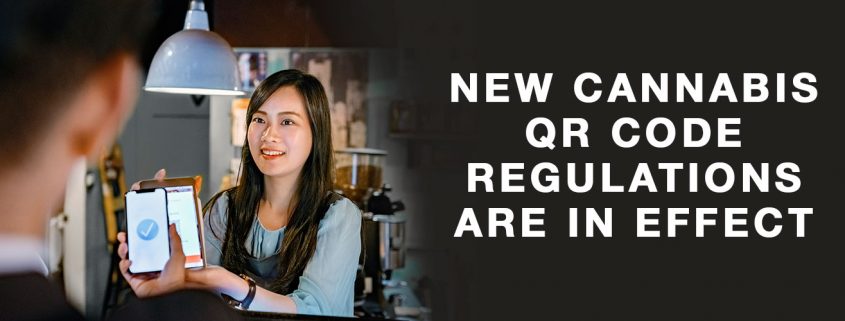Attention California Cannabis Businesses: New Cannabis QR Code Regulations Are In Effect
Following the recent announcement of the Bureau Of Cannabis Control (BCC) of its QR Code campaign, on January 23, 2020 the BCC announced new proposed emergency regulations mandating cannabis retailers, distributors, and microbusinesses prominently display the licensee’s QR code to help consumers identify licensed cannabis retail stores, assist law enforcement and support the legal cannabis market where products such as vape cartridges are routinely tested to protect public health and safety.
A QR Code (abbreviated from Quick Response code) is the trademark for a type of matrix barcode (or two-dimensional barcode) first designed in 1994 for the automotive industry in Japan. The QR Code consists of black squares arranged in a square grid on a white background, which can be read by an imaging device such as a smartphone camera.
The proposed regulations require licensed retailers to print and post their unique QR Code in storefront windows or near entrances, to help educate consumers about the importance of supporting and purchasing products from the legal cannabis market.
Smartphone users are able to use their smartphone camera to scan the displayed QR Code, which automatically links to the BCC’s Online License Search and confirms the cannabis retailer’s license status. The system also displays the retailer’s address and license location to ensure that the information is not counterfeit.
BCC Chief Lori Ajax stated:
“The proposed regulations will help consumers avoid purchasing cannabis goods from unlicensed businesses by providing a simple way to confirm licensure immediately before entering the premises or receiving a delivery. These requirements will also assist law enforcement in distinguishing between legal and illegal transportation of cannabis goods.”
Penalties For Selling Cannabis Without A License.
All commercial cannabis activity in California must be conducted on a premises with a valid license issued by the appropriate state cannabis licensing authority. Manufacturing, distributing or selling cannabis goods without a state license or at a location that is not licensed is a violation of state law.
For most defendants, unlicensed sale or transport for sale of cannabis is a misdemeanor punishable by up to six months in county jail and/or a fine of up to $1,000. For defendants under 18, it is an infraction. Also, giving away or transporting for sale up to 28.5 grams of cannabis without a license is an infraction.
But the sale/transport for sale of cannabis without a license to do so is a felony for the following defendants:
- Defendants who have a prior conviction for one of a list of particularly serious violent felonies, including murder, sexually violent offenses, sex crimes against a child under 14, or gross vehicular manslaughter while intoxicated, or a sex crime that requires them to register as a sex offender;
- Defendants who have two or more prior convictions for H&S Code §11360 sale/transportation of cannabis;
- Defendants who knowingly sold, attempted to sell, or offered to sell or furnish cannabis to someone under 18; or
- Defendants who imported or attempted or offered to import into California, or transported or attempted/offered to transport out of California for sale, more than 28.5 grams of cannabis or more than four grams of concentrated cannabis.
In any of these scenarios, black market sale or transportation for sale of cannabis under H&S Code §11360 is punishable anywhere from two to four years in jail.
Transporting cannabis without intent to sell it, or giving cannabis away, is not a crime in California so long as BOTH of the following are true:
- You transport or give away not more than 28.5 grams of cannabis or eight grams of concentrated cannabis, and
- Any people you give cannabis to are 21 years of age or older.
What Should You Do?
Both civil and criminal penalties will apply to unlicensed operators so it is imperative that anyone cultivating, manufacturing or distributing cannabis on a commercial basis in California seeks a local and state license for their operations immediately, if they have not already done so. Protect yourself and your investment by engaging a cannabis tax attorney at the Law Offices Of Jeffrey B. Kahn, P.C. located in Orange County (Irvine), the Inland Empire (including Ontario and Palm Springs) and other California locations. We can come up with tax solutions and strategies and protect you and your business and to maximize your net profits. Also, if you are involved in crypto currency, check out what a bitcoin tax attorney can do for you.


 Follow
Follow Follow
Follow
